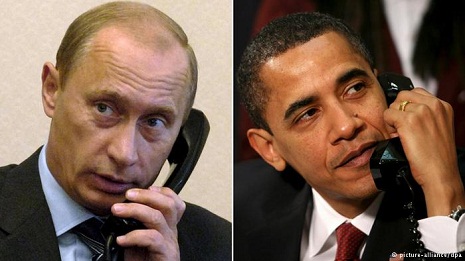ABM systems not discussed in conversation of Putin, Obama

"But the situation with the ABM systems is quite clear," Peskov added. However, he rejected the allegations that this meant severing the dialogue on the topic. "No, this is not the case," Peskov said.
Russian Foreign Minister Sergey Lavrov earlier said that, in connection with reaching the deal on the Iranian nuclear program, Moscow would expect some response from Washington aimed at cancelling plans to create the European ABM segment. He recalled that the USPresident Barack Obama, speaking in Prague in 2009, noted that if the Iranian nuclear issue was resolved, the task of creating the European ABM segment would lose its validity."
However, NATO said the alliance needed an anti-missile system despite the agreement reached with Iran.
According to Peskov, the conversation between Putin and Obama was constructive but it was not meant to settle all the disputable points.
"The conversation was constructive," Peskov stressed. "Such conversations of course do not settle disputable moments and cannot do this. But nevertheless they are at least very useful from the viewpoint of showing readiness to solve disputable moments through dialogue what is certainly encouraging," he said.
Speaking on whether such talks signal a "thaw" in Russia-US relations, Peskov said "the mere fact of a dialogue may be considered as rather positive."
The press secretary said the Russian-US dialogue on Syria continues.
"The presidents always understand each other, and whether they agree or not - it’s another matter," he said, answering a question whether Putin and Obama understood each other during their Wednesday’s telephone conversation.
Peskov replied in the negative to the question if the two leaders reached an agreement. "To understand and to agree - are different notions," the presidential press secretary said. Asked to specify, the Kremlin official said: "The dialogue continues."















































